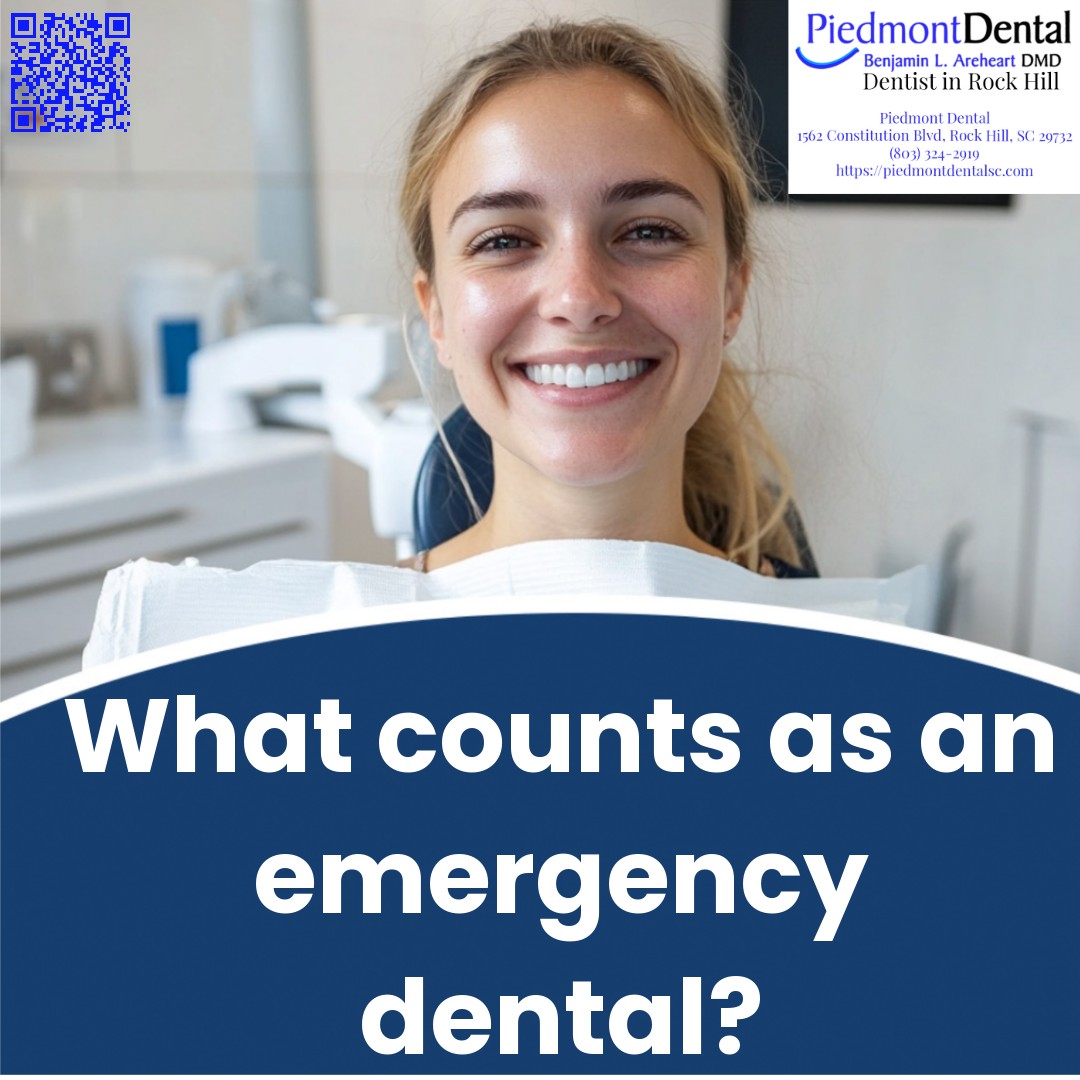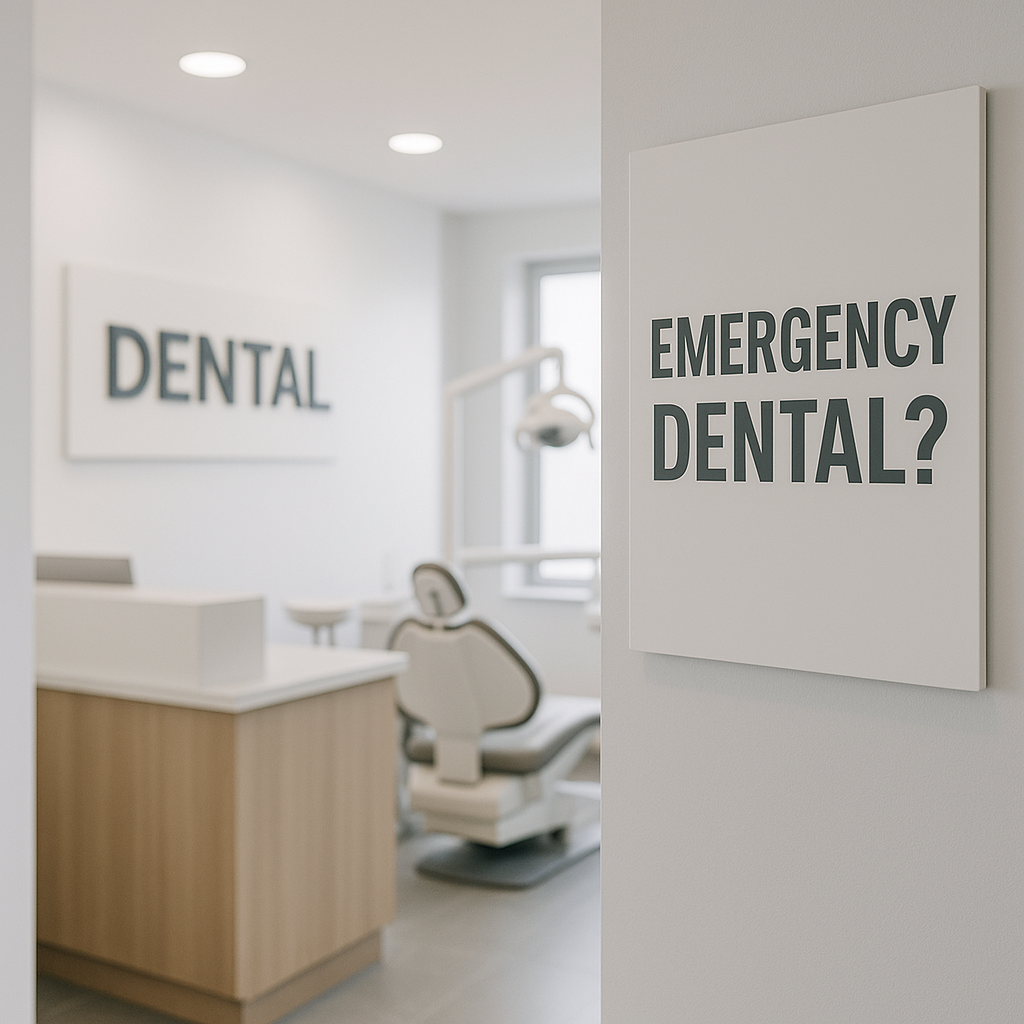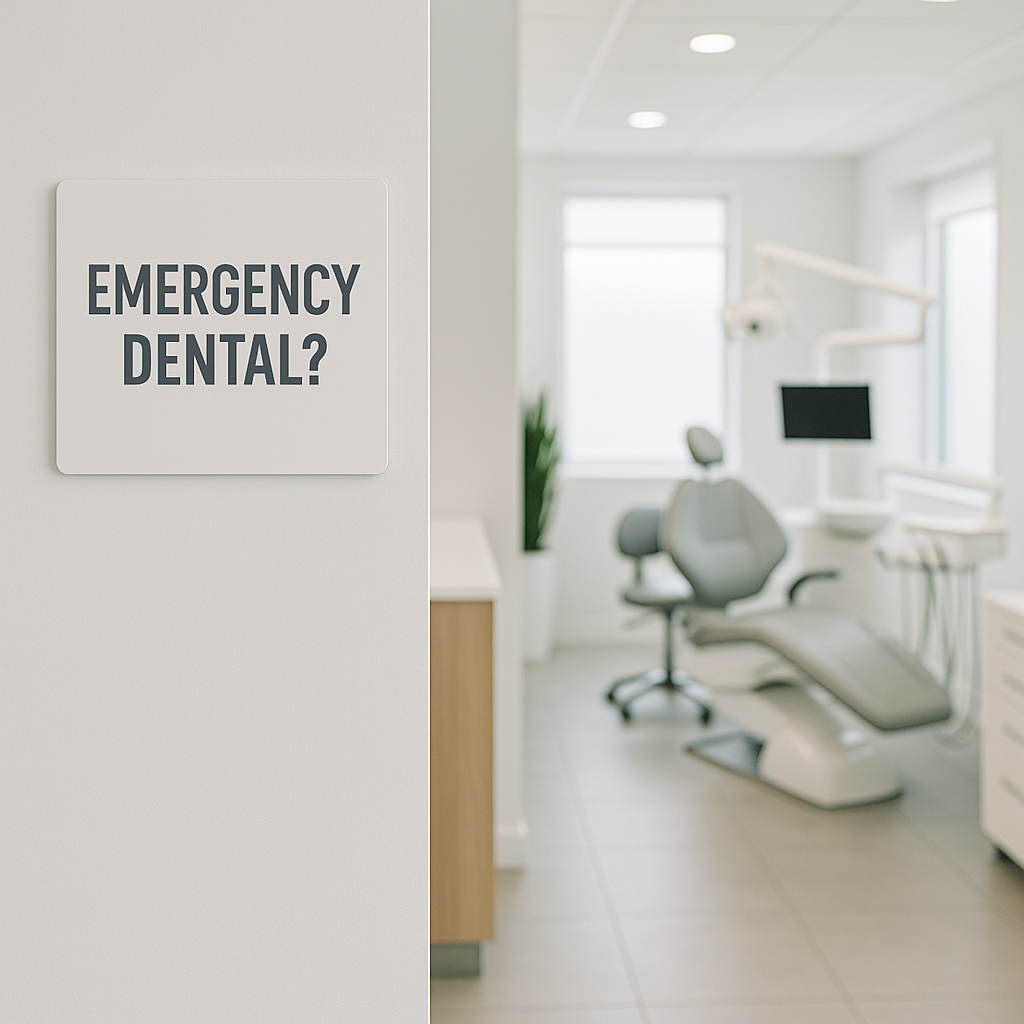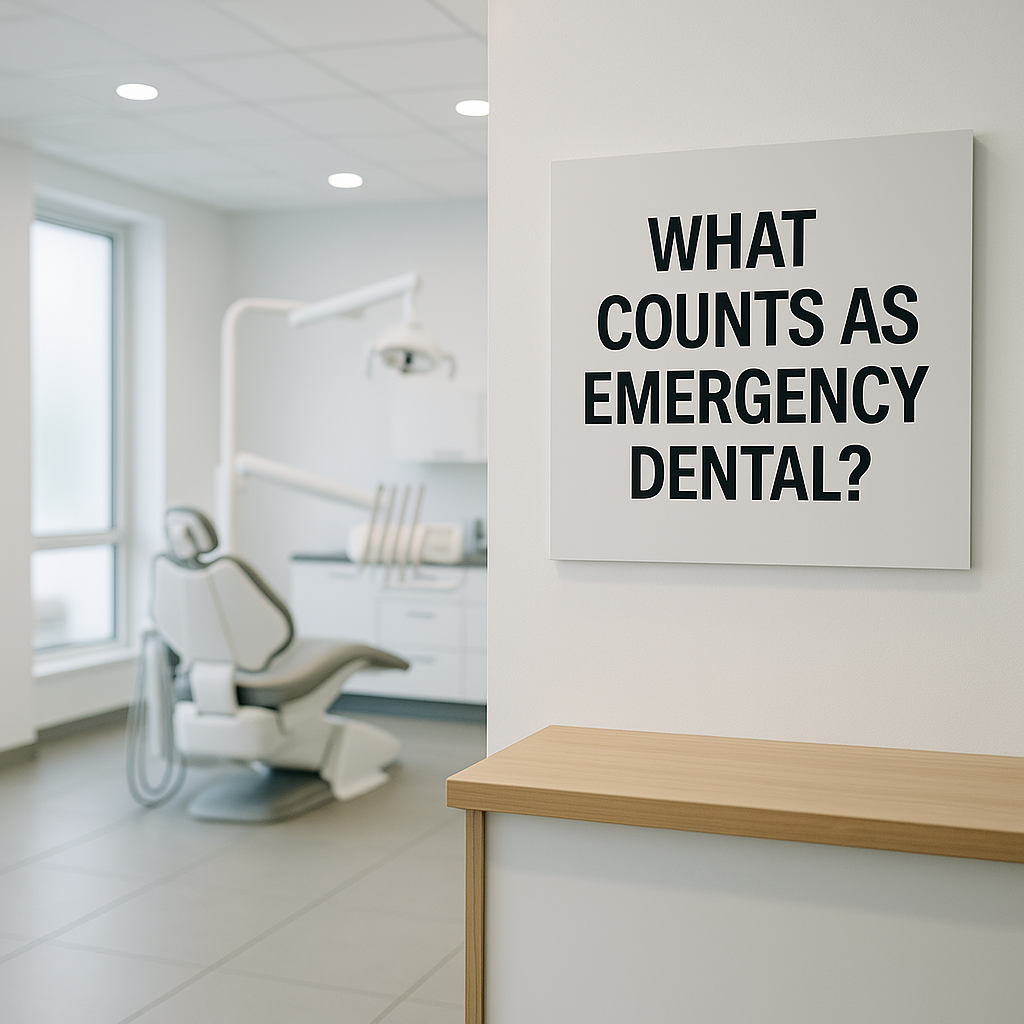What counts as an emergency dental?

Understanding Emergency Dental Situations
Dental emergencies can occur at any moment, often leading to significant pain and anxiety for those affected. Knowing what qualifies as an emergency dental situation not only helps you seek timely care but also aids in avoiding potential complications that can arise from delayed treatment. This comprehensive guide delves into various scenarios that are considered dental emergencies, how to respond effectively, and specific insights for residents of Rock Hill, SC. By the end of this article, you’ll feel better equipped to handle dental crises and understand the resources available in your area.
What Counts as an Emergency Dental? Common Scenarios
Several conditions can be classified as emergency dental situations. Here are some of the most common:
- Severe Toothache: Experiencing a persistent and severe toothache, especially if accompanied by swelling or fever, often indicates an infection or abscess. This condition requires immediate attention to alleviate pain and prevent further complications.
- Broken or Fractured Tooth: A broken or fractured tooth can occur due to accidents, sports injuries, or biting hard food. If the tooth is causing pain or sensitivity, it is essential to see a dentist right away.
- Knocked-Out Tooth: If a tooth gets knocked out, time is critical. Rinse the tooth gently without scrubbing, and attempt to place it back in the socket. If that’s not possible, keep it moist in milk or saline and seek emergency dental care immediately.
- Lost Filling or Crown: A lost filling or crown can expose the tooth to further damage or infection. It’s important to have it replaced as soon as possible to protect the underlying tooth structure.
- Gum or Mouth Injury: Injuries to the gums, tongue, or other areas of the mouth can result in excessive bleeding and pain. Immediate care is needed to control bleeding and prevent infection.
- Abscess or Infection: An abscessed tooth or gum infection can be life-threatening if left untreated. Symptoms include swelling, pain, and fever, necessitating urgent dental intervention.
How to Identify an Emergency Dental Situation
Identifying whether your dental issue is an emergency is crucial for timely treatment. Here are some guidelines to help you determine if immediate care is needed:
- Pain Level: If your pain is severe and persistent, it’s likely an emergency. Sharp, throbbing, or debilitating pain should not be ignored.
- Swelling: Any noticeable swelling in the mouth, gums, or face could indicate an infection that requires immediate attention.
- Bleeding: Continuous bleeding from the mouth or gums that does not subside with pressure should be treated as an emergency.
- Mobility of Teeth: Teeth that feel loose or shifted from their normal position require immediate evaluation to prevent further complications.
- Time Sensitivity: If you’ve lost a tooth, the sooner you get to the dentist, the higher the chances of saving it. Aim to see a dentist within the first hour of the incident.
What to Do in a Dental Emergency
Knowing how to respond in a dental emergency can significantly influence the outcome of your situation. Here are steps to take for various scenarios:
Severe Toothache
- Rinse your mouth with warm salt water to help reduce swelling and clean the area.
- Take over-the-counter pain relievers like ibuprofen or acetaminophen to manage discomfort.
- Contact your dentist for an appointment as soon as possible, as delaying treatment can worsen the condition.
Knocked-Out Tooth
- Handle the tooth by the crown, avoiding the root to prevent damage.
- Rinse it gently under water, but do not scrub it or remove any tissue fragments.
- Try to reinsert it into the socket if possible. If reinsertion isn’t feasible, store it in milk or saline and see a dentist immediately.
Broken Tooth
- Rinse your mouth with warm water and apply a cold compress to reduce swelling.
- Avoid biting down on the affected tooth and contact your dentist to schedule an urgent visit.
Lost Filling or Crown
- Keep the area clean and avoid chewing on that side to prevent further damage.
- If possible, use dental cement or sugarless gum to temporarily hold the crown in place.
- Visit your dentist as soon as possible for a permanent solution.
Gum Injury
- Apply pressure with a clean cloth or gauze to control bleeding.
- Seek dental care immediately if the bleeding persists for more than 10 minutes.
Costs of Emergency Dental Care
The cost of emergency dental care can vary widely depending on the nature of the treatment required. Generally, you might expect to pay the following:
- Emergency dental exam: costs between $140 – $430+
- Tooth extraction: costs between $290 – $860+
- Root canal treatment: costs range from $720 – $2,160+
- Crown replacement: costs can be between $1,150 – $2,880+
Keep in mind that these costs can increase by at least 20% depending on the complexity of the situation and any additional procedures that may be necessary. It’s always a good idea to discuss costs upfront with your dentist and check if your dental insurance covers emergency services.
Preventing Dental Emergencies
While some dental emergencies are unavoidable, there are strategies you can implement to minimize the risk:
- Maintain Oral Hygiene: Regular brushing and flossing can help prevent cavities and gum disease, which can lead to emergencies. Always use fluoride toothpaste and consider an antibacterial mouthwash.
- Regular Dental Check-ups: Schedule routine visits with your dentist for cleanings and exams to catch potential issues early before they escalate into emergencies.
- Wear a Mouthguard: If you participate in contact sports or activities with a risk of dental injury, wearing a mouthguard can protect your teeth from trauma.
- Avoid Hard Foods: Be cautious when eating hard candies, ice, or other hard foods that can crack or damage teeth.
Local Insights for Rock Hill, SC Residents
For residents of Rock Hill, SC, it is vital to know that you have access to various dental practices that offer emergency services. Local clinics, such as Piedmont Dental, provide 24/7 emergency dental care, ensuring that you can receive help whenever you need it. Familiarizing yourself with the locations and contact information of emergency dental services in Rock Hill can save precious time during a crisis.
Additionally, many local dental offices are equipped to handle emergencies and often have flexible scheduling to accommodate urgent cases. Whether you’re dealing with a toothache, injury, or infection, knowing where to go can alleviate stress and ensure prompt treatment. You can also ask friends or family for recommendations to find a trustworthy dentist who meets your needs.
FAQs About Emergency Dental Situations
What should I do if I have a dental emergency after hours?
If you experience a dental emergency after regular office hours, contact your dentist’s office. Many dental practices have emergency phone lines or can direct you to an on-call dentist. If immediate care isn’t available, consider visiting an urgent care facility that handles dental emergencies, ensuring you receive the necessary treatment without delay.
Can I wait to see my dentist for a dental emergency?
It’s crucial not to delay seeking treatment for a dental emergency. Waiting can exacerbate the condition, leading to increased pain, complications, and potentially higher treatment costs. If you suspect that your issue is an emergency, it’s best to err on the side of caution and seek care promptly.
How can I manage pain while waiting for dental care?
You can manage pain by taking over-the-counter pain relievers, applying a cold compress to the affected area, and avoiding food and drinks that may irritate the injury or infection. Rinsing your mouth with warm salt water can also provide temporary relief. However, these measures are only stopgap solutions; professional dental care is essential.
Conclusion
Understanding what counts as an emergency dental situation is essential for maintaining your oral health. By recognizing the signs and knowing how to respond, you can minimize pain and prevent complications. If you experience any of the scenarios mentioned, do not hesitate to contact your local emergency dentist, such as Piedmont Dental in Rock Hill, SC, for prompt care. Being prepared and informed can make a world of difference in managing dental emergencies effectively.
Related Resources
- Emergency Dental Services in Rock Hill, SC
- Understanding Dental Insurance Options
- Tips for Maintaining Oral Health



